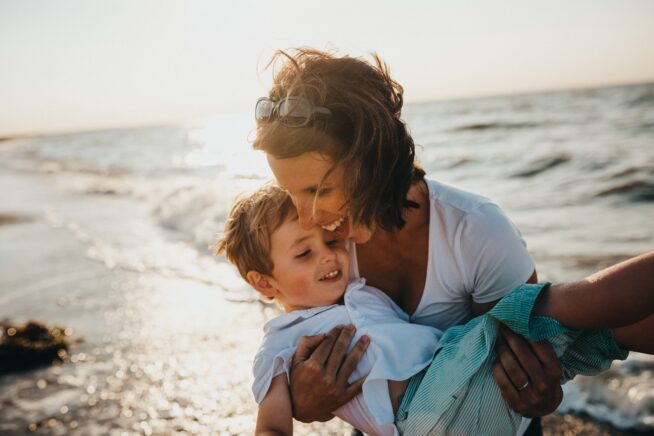I planned my methamphetamine use around my pregnancy. I was homeless with multiple DUIs and had my son taken away by authorities twice before his second birthday. Believe it or not, having my son taken away from me is what eventually saved my life. This is my story.
My Personal Journey
My addiction started at an early age. At 14, I was a high school freshman dealing with weight issues, vicious bullying and low self-esteem. I didn’t have many friends. When the group of cool kids invited me to a party, I went.
I spent my 20s trying any substance that came my way. As I got older, I was in and out of treatment centers. I had periods of sobriety, but they never lasted long. What many don’t realize is that to fully recover from addiction, the desire to change has to come from deep within you—and I wasn’t ready, so sobriety never stuck.
In my late 30s, I found out I was pregnant. Unfortunately, I was not sober. I tried and wanted to stop but the disease of addiction was stronger. My addicted brain rationalized using methamphetamine while carrying my child. I knew methamphetamine use in the first trimester can cause a cleft lip, so I waited until the second and third trimesters to use because the risks weren’t as great. That’s how much power these drugs had over me.
Fortunately, my son was born completely healthy, but my use continued. Eventually, the authorities came and physically took him from my arms. I remember thinking to myself, ‘I lost everything. I’ve lost my family, my soul, my career, and I’m about to lose my son forever, the only perfect thing in my life.’ It was clear I couldn’t get clean for myself, but I had to do it for him.
Realizing I Needed Help
I entered treatment this time with a different mindset. Many nights I cried and questioned myself, but my son is what kept me going. These were some of the most challenging times in my life, but anytime my faith wavered, I’d think of him. It took a great deal of work, but I was finally back with my son.
Today, I have full custody of my child. He’s a happy 7-year-old, and I love him beyond measure. My journey to get back to him was not easy, and unfortunately, there are mothers out there who are currently living the life I once had.
For Those Struggling with Addiction, Here’s What You Can Do
- Give yourself grace. This is a brain disease. And like many chronic diseases, it causes spiritual, physical, and emotional sickness. The trauma, guilt, shame, fear and resentment that contributed to your addiction are the very things you have to let go. Set yourself free and let go of the guilt. You are not a bad person.
- Accept the mistakes you’ve made. They say the truth will set you free, and in this case, it does. Not only until I was able to accept the consequences of my situation that I truly began to work on me. The past is not an easy thing to confront. It’s hard recounting some of the worst times of your life, but once you do, it’s much easier to move forward.
- Know you are stronger than you think. Even if you don’t believe it, you are stronger than you think, and your children deserve you. Overcoming this disease is more monumental than you realize. Addiction causes physical changes in how the brain responds to situations involving stress and self-control, and the love for your children can help you overpower it.
- It’s ok to ask for help. If you’re still struggling with addiction, you’re certainly not alone. There is hope and there is help. Things are not going to get better overnight, so you have to work your way toward that light at the end of the tunnel. It’s important to never give up on yourself. Work on yourself and seek guidance from professionals. If you are struggling, there are resources available such as https://americanaddictioncenters.org/.
I have been in recovery for five years, and I am so thankful of where I am today. I truly believe my son saved me. Whether or not you are a parent, know that there is hope—no matter how dark you may be feeling.
 Karen McGinnis is an outreach coordinator for American Addiction Centers. After decades of drinking, substance use and the tumultuous lifestyle that followed, Karen received help and now has more than five years in recovery. She has since made it her career to connect those with alcohol and/or substance use disorder with necessary resources and works with families to help them better understand the disease of addiction. Outside of work, Karen is a full-time single mother to 7-year-old Owen.
Karen McGinnis is an outreach coordinator for American Addiction Centers. After decades of drinking, substance use and the tumultuous lifestyle that followed, Karen received help and now has more than five years in recovery. She has since made it her career to connect those with alcohol and/or substance use disorder with necessary resources and works with families to help them better understand the disease of addiction. Outside of work, Karen is a full-time single mother to 7-year-old Owen.
Image courtesy of Xavier Mouton Photographie.












